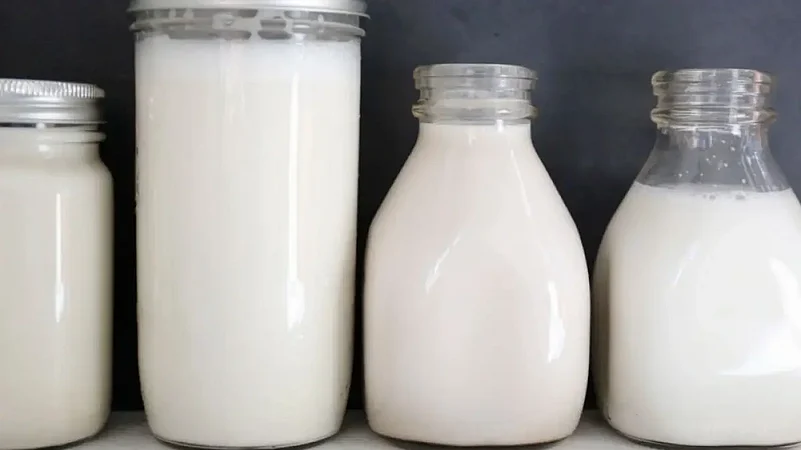Plant-based food products have been increasingly rising in demand in a newer food development segment. Data shows that over the last decade, the number of people drinking cow milk has dropped, with people swapping dairy for plant-based alternatives, such as oat and almond milk. With new types of plant-based milk seemingly emerging every week, this trend is unlikely to stop any time soon.
For years, alternative kinds of milk, such as almond, soy, and even cashew milk, have been readily available. But seemingly almost overnight, the plant-based milk category has exploded — now offering more alternative kinds of milk than ever before
Possible reasons for the switch
There are a number of reasons why people are making the switch from dairy to plant-based alternatives. For one, many people are not able to consume dairy. Not only are they lactose intolerant, but dairy is also the most common allergen in early childhood.
Another major reason that people are switching to plant-based dairy alternatives is because of animal welfare and environmental concerns. Studies show that dairy milk produces more environmental emissions and requires more land and water usage than plant-based dairy alternatives.
But of course, there are many reasons why a person may need to switch to plant-based dairy alternatives, whether that is due to allergies or environmental concerns. If you’re worried about you or your child getting enough vitamins and minerals in your diet after making the switch to plant-based alternatives, itís worth consulting with a registered dietitian or doctor. Plant-based kinds of milk are generally not recommended for children under two years. After that, fortified soya milk is likely the best alternative as it will contain important vitamins and minerals, as well as high amounts of protein.
But despite being marketed as alternatives to dairy, plant-based products may not be exactly the same as dairy. So if you’re thinking of making the switch, there are a few things to be aware of.
Attention to nutrients
Cow milk is a rich source of many important nutrients, such as protein, calcium, iodine and vitamin B12. But many plant-based dairy alternatives donít naturally contain the same amount of these nutrients and micronutrients as dairy milk ñ if any at all.
On average, most plant-based alternatives contain almost no protein ñ while one glass of cowís milk contains around eight grams of protein. Soya milk is the exception, containing a similar amount of protein per glass as dairy. If you do make the switch to plant-based dairy products, soya milk may be your best bet for getting protein. If you use other types of plant-based milk alternatives, it will be important to include other high-protein foods in your diets, such as tofu or eggs, to make sure youíre getting enough.
Protein is essential for healthy growth and development. While everyone needs protein, some groups may need more than others. For example, older adults need it to maintain muscle strength with ageing and children require it for growth.
Most plant-based dairy alternatives also don’t naturally contain the same vitamins and minerals that dairy does. As such, many need to have these added during the manufacturing process, which is called ìfortificationî. Itís worth noting, however, that any plant-based dairy alternatives labelled ìorganicî will not contain any fortified vitamins and minerals as this would go against regulations.
Calcium is a very important micronutrient found in milk. It ís needed for good bone health, particularly in children and adolescents.
However, research shows that only 57 per cent of milk alternatives, 63 per cent of yoghurt alternatives and 28 per cent of cheese alternatives are fortified with calcium. So to ensure you’re getting enough in your diet, check the label and look for products that have been fortified with calcium. Or, focus on eating foods that contain calcium ñ such as fortified bread and cereals or tinned sardines or salmon.
Iodine is another important nutrient, especially for pregnant women and young children as itís important for brain development. It also helps make thyroid hormones, which are important for both growth and metabolism. Despite milk and dairy products being the main source of dietary iodine, only a small handful of plant-based dairy products are fortified with iodine. Again, itís important to read the productís label to see if itís been fortified with iodine or not. Otherwise, focus on eating foods that contain iodine, such as fish, shellfish or seaweed ñ or if this is not possible take a supplement.
Also, look out for vitamin B12 in any plant-based dairy alternatives you may buy. This vitamin is essential for the brain, nerves and blood cells. While some plant-based dairy alternatives contain vitamin B12, most donít, so youíll need to focus on getting vitamin B12 from other food sources. Meat typically contains the highest levels of vitamin B12, but if you follow a vegetarian or vegan diet you may need to consume yeast extract, fortified breakfast cereals or supplements to make sure youíre getting enough.
Plant-based milk to dairy-based milk
- Potato milk is the sweet delight you might want to try.
- Hazelnut milk is that creamy addition to your dessert.
- Oat milk could be the new topping on your latte!
- Sesame milk can be a great substitute for those allergic to nuts.
- Banana milk for those, who want to get their potassium levels fixed.
If you prefer other plant-based milk alternatives, look for one thatís fortified. Avoid rice drinks if you have children under the age of five as they may contain high levels of arsenic. But thanks to increasing interest in plant-based diets, there is now a wealth of choices when it comes to plant-based dairy alternatives.
(with PTI inputs)
















